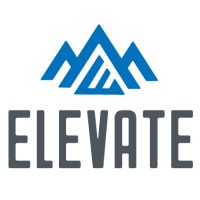By Jim Shellenberger, CFA, CFP®
Surprises are usually enjoyable—unless it’s time to file your taxes. For many people, tax season is a time of stress and anxiety, especially after all the economic instability over the past few years. Navigating the intricacies of your own finances and the continually changing tax codes and regulations can be overwhelming. But turn that stress into confidence by reviewing and using these 6 commonly overlooked tax deductions that can help you save big on your tax return and keep more money in your pocket.
Out-of-Pocket Charitable Contributions
There’s more to charitable deductions than many people realize. Not only are the big-ticket contributions deductible, but the out-of-pocket expenses paid while volunteering or donating your time to accredited charitable activities are also deductible too. (1)
For instance, if you participate in charitable activities that involve up-front expenses, these may be deductible on your tax return. Whether you purchase canned goods for a food drive or supplies for a local school fundraiser, your contributions are deductible. If you drove your car for charitable causes in 2022, you can also deduct 14 cents per mile and the cost of tolls. (2) You must keep a detailed log and receipts for these types of charitable giving.
Remember to keep your receipts and obtain verification for any contributions over $250 to make sure all your bases are covered. Every tax situation is different so always speak to your tax advisor about the possibility of these deductions in preparing your data for your 2022 tax filings.
Self-Employment Social Security & Medicare Tax Deduction
For self-employed individuals, you can deduct a portion of the Social Security and Medicare tax you pay. (3) Since self-employed individuals are required to pay both the employer and employee portion of Social Security and Medicare tax, there is a tax deduction available for the portion considered paid by the “employer.”
The full tax is 15.3% of net earnings, but you can write off 7.65% using this deduction. (4) The best part is that this is an above-the-line deduction, which means it can be used in conjunction with the standard deduction.
Student Loan Interest
Another above-the-line deduction that many people forget about is the student loan interest deduction. This deduction allows the borrower to deduct up to $2,500 of student loan interest paid over the course of the year, even if the loan is repaid by someone else. (5) Depending on your total income and the filing status you are using to file your return, this may be another deduction to take.
Here’s an example. If you took out a Parent PLUS Loan for your child to attend school and they have been the person making the payments, you can still deduct whatever interest was paid on your tax return since you are technically the borrower. In this case, the IRS assumes that your child gave you the money, and then you paid the debt yourself, thus allowing the borrower (not the payor) to receive the tax deduction.
With student loan payments on pause for the last two years, many people will not qualify. If you have consistently made payments, or if you have paid down the interest portion on any of your student loans in 2022, make sure to claim this deduction if your modified adjusted gross income is less than the phase-out threshold. (6)
Medicare Premiums for Self-Employed Individuals
If you’re over the age of 65, enrolled in Medicare, and self-employed, then you can deduct some or all the premiums paid for Medicare Part B and Part D as well as the cost of any supplemental policies or the Medicare Advantage plan.
The good news is this is an above-the-line deduction, so you do not have to itemize and the premium costs will not be subject to the 7.5% AGI floor that typically applies to medical expenses. (7) Note that you are only eligible for this deduction if you are not also covered by an employer health plan, whether that be through a second job or through your spouse’s employer.
The even better news is that even if you are not 65 or enrolled in Medicare, you can still deduct the cost of healthcare (and long-term care) premiums if you are self-employed and not covered by an employer health plan. (8)
State Income Tax Refund
Many people automatically assume they are required to report a state income tax refund as income on their federal tax return. But this is not actually the case. If you did not itemize your deductions to claim the state income tax paid, then any refund received is not considered income at the federal level. (9) In some situations, even if you do itemize your deductions, your state tax refund may still not be taxable depending on certain factors.
Since most taxpayers claim the standard deduction and do not claim state and local tax deductions, the majority of those who receive a state income tax deduction do not need to report it on their Form 1040. Keep this in mind as you file your taxes this year, and don’t mistakenly report more income than is rightfully taxable.
Moving & Travel Expenses for Military Personnel
When the Tax Cuts and Jobs Act was signed in 2017, many taxpayers lost the ability to deduct moving expenses on their tax returns. But this deduction is still available for active-duty military personnel. If you or your spouse were an active-duty military member who relocated in 2022 and you did not receive a reimbursement from the government for your move, you will be able to deduct move-related expenses including the cost of travel, lodging, moving supplies, services, and shipping. (10)
What’s more, military reservists and National Guard members are also able to deduct the cost of work-related travel as long as the travel is overnight and more than 100 miles away from home. (11)
Don’t Miss Out on Important Tax Deductions & Credits
Don’t let this tax season take you by surprise! Using these deductions will help you confidently file your taxes and keep more money in the bank so you can live life the way you want. And remember, there are many more unique deductions out there you could use depending on your specific situation. It’s best to work with a professional who can advise you in the process.
At Elevate Wealth Management, we offer financial advice to help you navigate the 2023 tax season with confidence and reach the dreams you’ve worked so hard to realize. Schedule an introductory meeting by reaching out to us at jshellenberger@frontierasset.com or 307.673.5675.
About Jim
Jim Shellenberger, CFA, CFP® is a financial advisor at Elevate Wealth Management, an independent, fee-only wealth management firm serving young professionals, pre-retirees, and retirees in Sheridan, Wyoming, and surrounding areas. With the mission of serving and educating, Jim is dedicated to providing comprehensive, top-notch services that not only help his clients reach their goals, but also empower them to make the best financial decisions for their lives and walk toward their future with confidence. Jim is known for going the extra mile, not only offering valuable knowledge in investment management as a former investment analyst, but building long-lasting relationships so he can give honest, customized advice and strategies that make an impact on their lives.
Jim has a bachelor’s degree in business administration with a minor in finance from the University of Wyoming. He is proud to be a Wyoming native and loves exploring the outdoors with his family—hiking, fishing, hunting, and backpacking. Faith is an integral part of Jim’s life, and he always looks forward to attending church on Sundays, Bible study on Fridays, and being part of his church community. He’s also an avid sports fan! Fun fact: Jim owns shares in the Green Bay Packers. To learn more about Jim, connect with him on LinkedIn.
The views expressed represent the opinion of Frontier Asset Management. The views are subject to change and are not intended as a forecast or guarantee of future results. This material is for informational purposes only. It does not constitute investment advice and is not intended as an endorsement of any specific investment. Stated information is derived from proprietary and nonproprietary sources that have not been independently verified for accuracy or completeness. While Frontier Asset Management believes the information to be accurate and reliable, we do not claim or have responsibility for its completeness, accuracy, or reliability. The use of such sources does not constitute an endorsement. Frontier does not have an affiliation with any author, company or security noted within. Statements of future expectations, estimates, projections, and other forward-looking statements are based on available information and the Frontier Asset Management’s view as of the time of these statements. Accordingly, such statements are inherently speculative as they are based on assumptions that may involve known and unknown risks and uncertainties. Actual results, performance or events may differ materially from those expressed or implied in such statements. Investing in securities involves risks, including the potential loss of principal. Past performance is not indicative of future results.
Frontier does not provide tax advice. Please consult with a CPA for recommendations pertaining to individual circumstances.
Elevate is the financial planning division of Frontier Asset Management. Frontier Asset Management is a Registered Investment Adviser. The firm’s ADV Brochure and Form CRS are available at no charge by request at info@frontierasset.com or 307.673.5675 and are available on our website www.frontierasset.com. They include important disclosures and should be read carefully.
20230413.11489
_____________
(2) https://www.driversnote.com/irs-mileage-guide/irs-mileage-rate-2022
(5) https://www.irs.gov/taxtopics/tc456
(7) https://www.irs.gov/taxtopics/tc502

